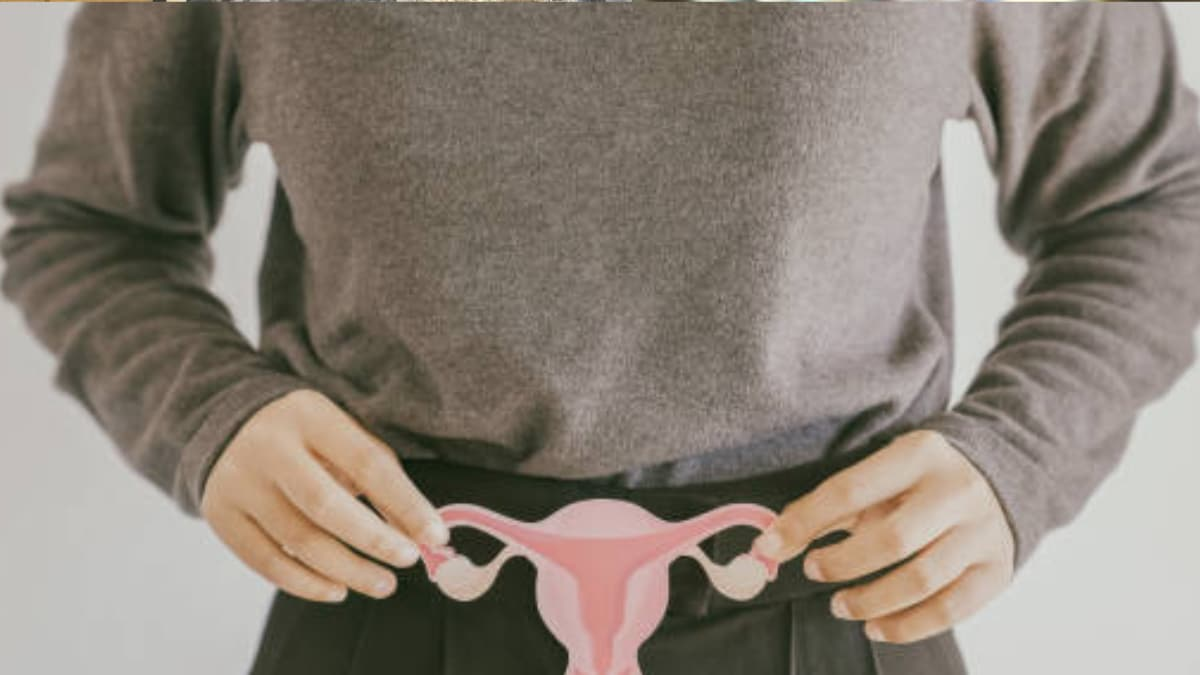Irregular or missed periods are a key indicator of polycystic ovary syndrome, where impaired ovarian function prevents ovulation. (Image: Shutterstock)
While weight gain is a common symptom, women with PCOS often face a variety of hormonal imbalances that can complicate their weight loss journey.
Polycystic ovary syndrome (PCOS) is a common hormonal condition affecting women of reproductive age. According to the World Health Organization (WHO), it is estimated to affect between 8 and 13 percent of women in this demographic, with up to 70 percent of cases going undiagnosed. Symptoms include irregular periods, acne, excessive facial or body hair, weight gain, and more.
These are the signs of hormonal imbalances that a woman with PCOS may encounter during her weight loss journey.
- Abdominal fatWomen with PCOS often experience what is commonly referred to as a PCOS belly, where fat tends to accumulate around the waist and internal organs. This pattern is influenced by hormonal imbalances that contrast with the way fat is distributed in healthy women. Fat is often stored in areas such as the hips, thighs, or breasts in healthy women. In women with PCOS, this type of fat accumulation made worse by inflammation and insulin resistance (also symptoms of PCOS) increases the chances of heart disease and diabetes.
- Sugar cravingsWomen with PCOS often have intense carbohydrate cravings due to insulin resistance, which leads them to overeat. This problem is especially prevalent among obese women compared to lean and underweight women with PCOS. Opting for whole grains and ensuring adequate protein intake can help stabilize blood sugar levels. In addition to this, processed or sugary foods should be avoided to reduce cravings.
- Hair lossHair loss is a common symptom of PCOS, which is caused by an increase in androgen hormones. This hormonal imbalance causes hair to become thin and brittle and break easily. Women with PCOS often experience excess testosterone which can worsen hair loss. It is important to consult healthcare experts to treat hair-related problems.
- Irregular periodsIrregular or missed periods are a key indicator of polycystic ovary syndrome, in which impaired ovarian function prevents ovulation. Diagnosis usually occurs two to three years after a girl's first period, as menstrual cycles take time to stabilise. Insulin resistance contributes to increased testosterone production in the ovaries, affecting both ovulation and the regularity of periods.
- FatigueWhile PCOS itself does not directly cause fatigue, it is often linked to several symptoms and conditions that can contribute to feelings of tiredness. Factors such as obesity, hormonal imbalances, and heavy periods associated with PCOS can all play a role in fatigue. Changes in hormones such as cortisol and thyroid hormones that control energy levels significantly affect fatigue levels.












